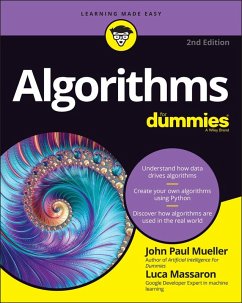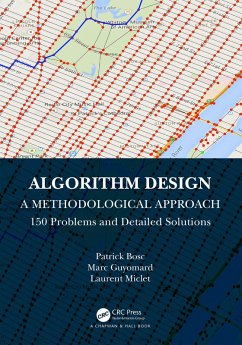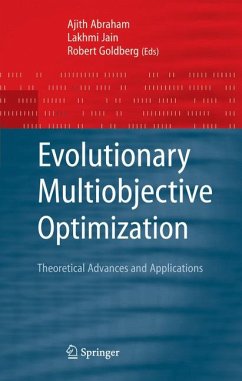
Evolutionary Algorithms (eBook, PDF)
Versandkostenfrei!
Sofort per Download lieferbar
139,99 €
inkl. MwSt.
Weitere Ausgaben:

PAYBACK Punkte
0 °P sammeln!
Evolutionary algorithms are bio-inspired algorithms based on Darwin's theory of evolution. They are expected to provide non-optimal but good quality solutions to problems whose resolution is impracticable by exact methods. In six chapters, this book presents the essential knowledge required to efficiently implement evolutionary algorithms. Chapter 1 describes a generic evolutionary algorithm as well as the basic operators that compose it. Chapter 2 is devoted to the solving of continuous optimization problems, without constraint. Three leading approaches are described and compared on a set of ...
Evolutionary algorithms are bio-inspired algorithms based on Darwin's theory of evolution. They are expected to provide non-optimal but good quality solutions to problems whose resolution is impracticable by exact methods. In six chapters, this book presents the essential knowledge required to efficiently implement evolutionary algorithms. Chapter 1 describes a generic evolutionary algorithm as well as the basic operators that compose it. Chapter 2 is devoted to the solving of continuous optimization problems, without constraint. Three leading approaches are described and compared on a set of test functions. Chapter 3 considers continuous optimization problems with constraints. Various approaches suitable for evolutionary methods are presented. Chapter 4 is related to combinatorial optimization. It provides a catalog of variation operators to deal with order-based problems. Chapter 5 introduces the basic notions required to understand the issue of multi-objective optimization and a variety of approaches for its application. Finally, Chapter 6 describes different approaches of genetic programming able to evolve computer programs in the context of machine learning.
Dieser Download kann aus rechtlichen Gründen nur mit Rechnungsadresse in A, B, BG, CY, CZ, D, DK, EW, E, FIN, F, GR, HR, H, IRL, I, LT, L, LR, M, NL, PL, P, R, S, SLO, SK ausgeliefert werden.













